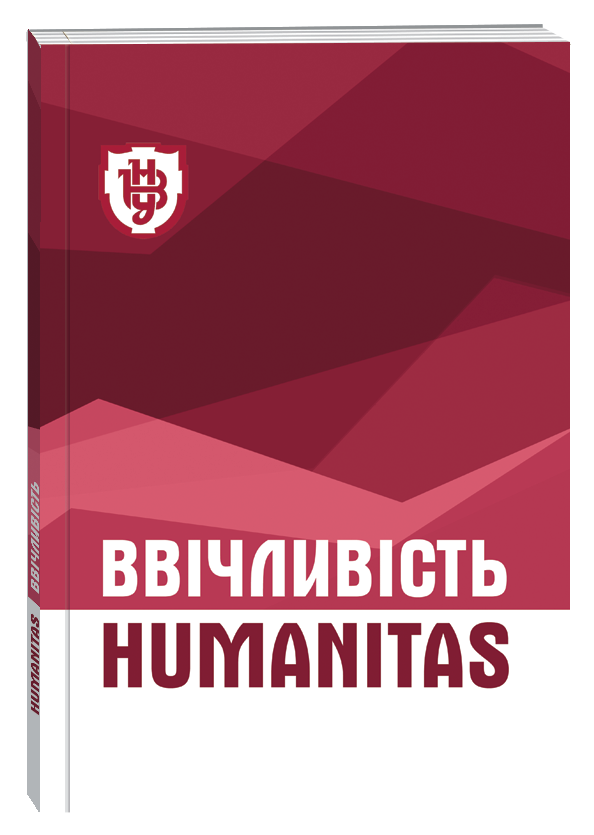COMPONENTS OF THE MEDIATION COMPETENCE FORMATION IN FUTURE SOCIAL WORKERS
DOI:
https://doi.org/10.32782/humanitas/2025.3.4Keywords:
formation of mediation competence, social workers, communication, model of formation levels, components, professional trainingAbstract
The article explores the practical principles of mediation as a technology for resolving conflict situations, with particular emphasis on the importance of developing mediation skills in alignment with higher education standards for the training of future social workers.The aim of the article is a methodical analysis of the development levels of the components of mediator competence of future social workers as the basis of their professional training. Achieving the goal of the article made it possible to use such methods as analysis, generalization, systematization, as well as modeling the levels of formation of the components of mediator competence to illustrate its practical application.Scientific novelty of the study lies in the fact that the formation of mediatory competence requires the development of a methodology for assessing the levels of its formation , taking into account the specific features of social workers' training.Findings. It substantiates a model for the levels of formation of the components of mediator competence, presenting this as a foundation for the professional training of social work students.The study reveals that the practical application of alternative conflict resolution tools is gaining increasing relevance in the field of social work. This growing importance highlights the need for new approaches, technologies, and mechanisms to effectively address and prevent conflict situations.The article establishes that the formation of mediator competence in future social workers takes place during professional training, which includes both theoretical instruction and practical exercises. The integration of mediator competence assessment into practical coursework is emphasized as a crucial step in enabling students to systematically develop mediation skills. This approach enhances their ability to analyze real-world cases, provide constructive feedback, and simulate professional scenarios during the educational process.Furthermore, the article highlights the need for training programs to be structured around the gradual development of all components of competence, with a strong emphasis on the practical application of knowledge. It emphasizes that the components of such training programs should focus on cultivating knowledge, skills, and abilities in a cohesive and practice-oriented manner.
References
Бібік Н. Компетентнісний підхід: рефлексивний аналіз застосування. Компетентнісний підхід у сучасній освіті: світовий досвід та українські перспективи: Бібліотека з освітньої політики. 2004. 12 с.
Бліхар М., Бондарчук Н., Бугайчук А. Історія становлення та розвиток медіації як альтернативного способу вирішення спорів. Юридичний науковий електронний журнал. 2023. № 7.
Дзюба Т. Конфліктологічна компетентність як складова професійної компетентності керівника загальноосвітнього навчального закладу. Науковий вісник Південноукраїнського державного педагогічного університету ім. К. Д. Ушинського. Спецвипуск. 2002. С. 91–96.
Калаур С. Використання проблемних ситуацій та завдань під час формування у майбутніх фахівців соціальної сфери готовності до розв’язування професійних конфліктів. Оновлення змісту, форм та методів навчання і виховання в закладах освіти : зб. наук. праць: наук. записки РДГУ. Рівне : РДГУ, 2017. Вип. 17 (60). С. 171–175.
Калаур С. Використання тренінгових технологій під час формування готовності майбутніх фахівців соціальної сфери до розв’язання конфліктів у професійній діяльності. Професійна освіта: методологія, теорія та технології : зб. наук. праць. Переяслав-Хмельницький : ФОП Домбровська Я.М., 2017. Вип. 5/1. С. 86–98.
Кірдан О. Медіація як складник соціальних навичок та фахових компетентостей майбутніх соціальних працівників. Науковий вісник Південноукраїнського національного педагогічного університету імені К.Д. Ушин- ського. 2023. 3 (144). С. 96–100.
Кірдан О. Поняття «медіація» та підходи до його трактування у сучасному науковому дискурсі. Педагогічний часопис Волині. №2 (13). 2019. C. 12–20. DOI: 10.29038/2415-8143-2019-02-12-20 URL: https://evnuir.vnu.edu.ua/bitstream/123456789/16372/1/r_1-12-20.pdf
Міхновський Г. Історіографія становлення та розвитку альтернативних способів розгляду справ в Україні та світі. Академічні візії. 2024. 36. DOI: https://doi.org/10.5281/zenodo.13949293
Омельяненко С. Формування конфліктологічної компетентності майбутніх соціальних педагогів. Педагогіка вищої школи : методологія, теорія, технологія, 2009. С. 235–239.
Пірен М. Основи конфліктології. 1997. 210 с.
Рассказова О., Чернецька Ю. Розробка концепції підготовки соціальних працівників у педагогічному ВНЗ на засадах регіонального підходу. Вісник Луганського національного університету імені Тараса Шевченка. Серія : Педагогічні науки. №6 (303) жовтень, 2016. Частина ІІІ. С. 56–63.








